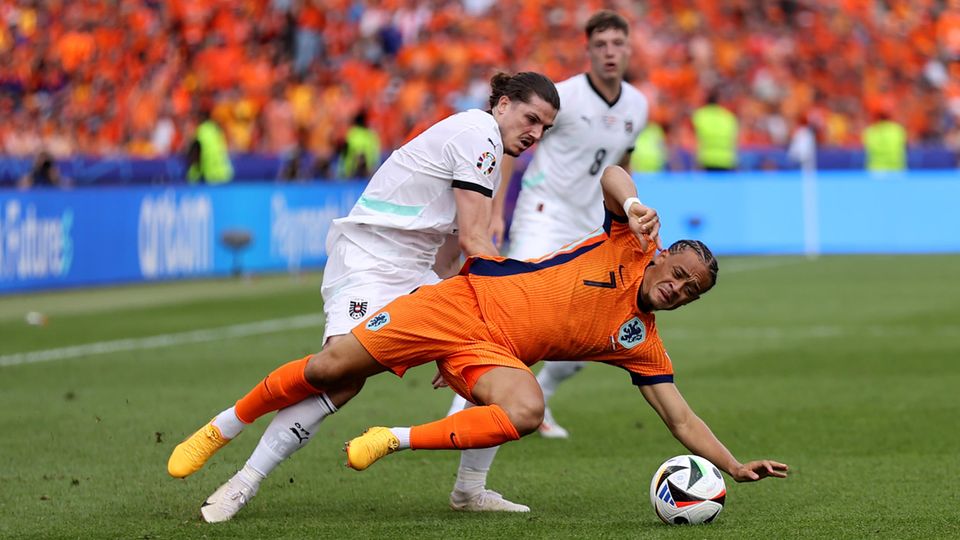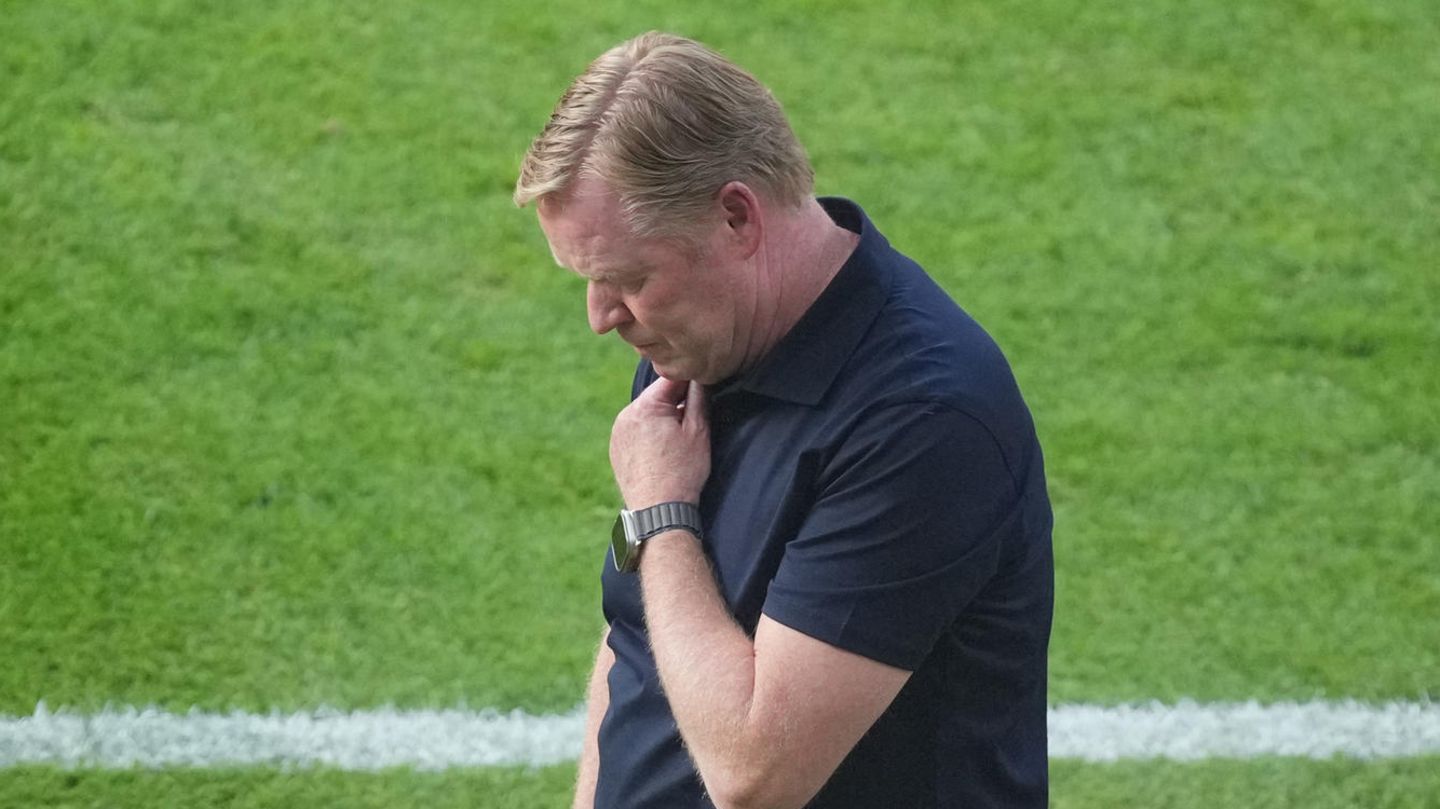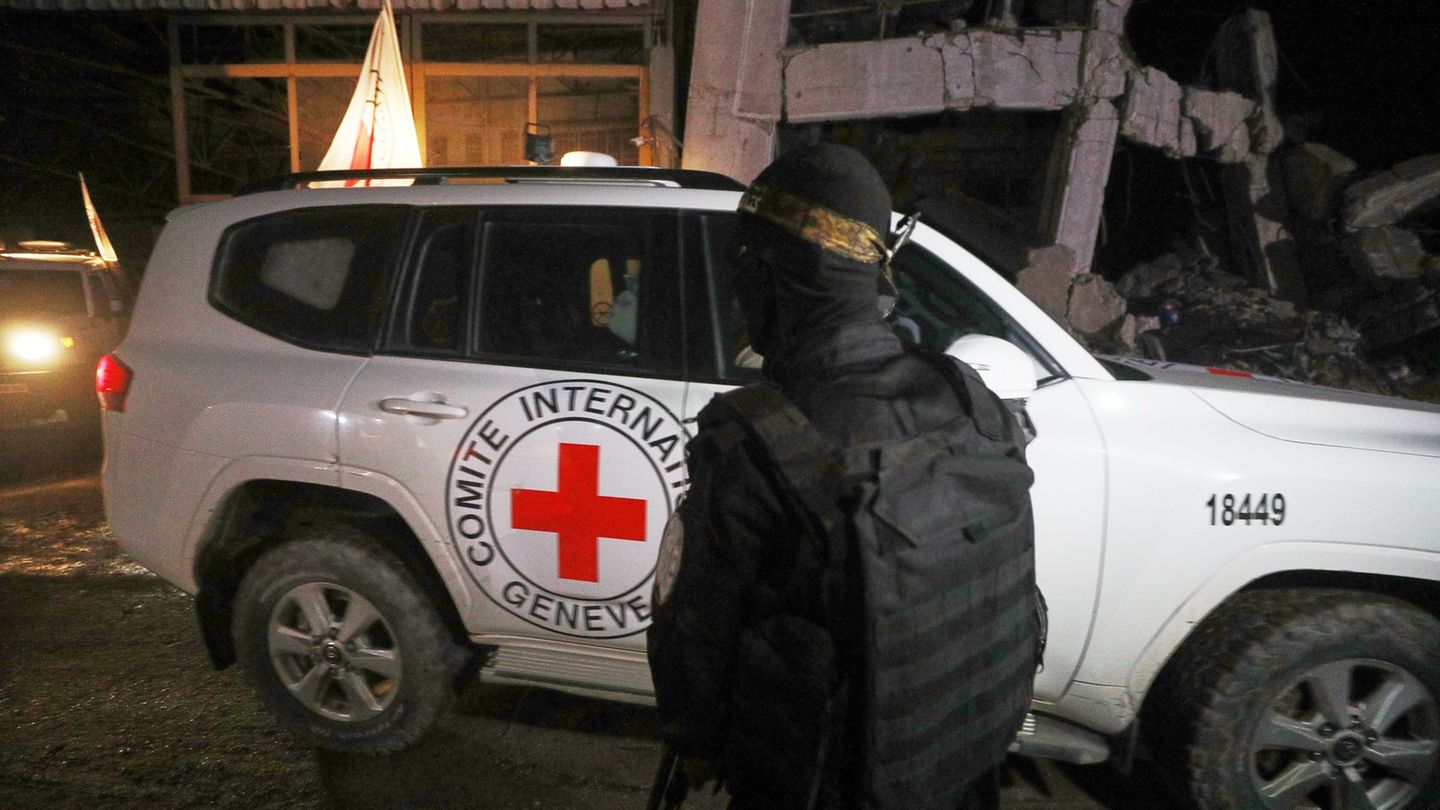The Netherlands have reached the round of 16 of the European Championship despite a difficult group. So is everything OK? No, the team is being criticized and coach Ronald Koeman is not expected to do much.
A week ago, everyone in the Netherlands would have been happy about this European Championship constellation. The 1988 European champions survived the difficult preliminary round group with runners-up France and dark horse Austria and will only face the outsider Romania in the round of 16 (Tuesday, 6 p.m./ARD and MagentaTV).
And if that works out on Tuesday in Munich, the tournament tree will continue to look good for Oranje: In the quarter-finals, the possible opponents are again Austria or Turkey. “Now a new tournament begins,” said striker Cody Gakpo from Liverpool FC on Monday. In the semi-finals, they would face the struggling English or Switzerland. No one that the great football nation of the Netherlands, according to its own standards, needs to hide from.
Is Ronald Koeman still the right man?
But this expectation is now apparently part of the problem. Before the start of the knockout round, coach Ronald Koeman is reminded every day that he has one of the most challenging jobs in the world of football. Since the 2:3 defeat in the last group match against Austria, the initially optimistic mood for the European Championship at home has turned into the opposite.

Austria defeats Oranje in dramatic match – all highlights in the video
05:55 min
At the press conference after this poor performance, Koeman was asked directly whether he could still stay as national coach. “I don’t think that’s a question for now,” said the 1988 European Championship hero. “It’s only the preliminary round that’s over. We still have a chance. If that doesn’t work out, you can ask the question again.”
It is in this atmosphere that the Dutch are now entering the decisive phase of the tournament. And the question is: where does this great pressure come from? Why has the Oranje gone through eleven different national coaches in the past 25 years, with Koeman, Louis van Gaal and Dick Advocaat serving several terms in office? And why does the mood change so easily in a team that has long been lacking players of the quality of Marco van Basten, Dennis Bergkamp or Arjen Robben?
Frank Wormuth headed the German Football Association’s coaching training for ten years before moving to the Netherlands in 2018. There he coached the first division clubs Heracles Almelo and FC Groningen and still lives there today near Nijmegen. After the 2021 European Championship, he himself was considered as the new national coach. Instead, it was van Gaal who was chosen for the third time.
Frenkie de Jong’s absence hurts
He says of the expectations in his adopted homeland: “Yes, there is criticism in the Netherlands: of the haphazard game. That there is no team on the pitch.” But he can also understand that.
“This team is good,” says Wormuth: “Van Dijk plays in Liverpool. Aké plays for Manchester City. Gakpo also plays for Liverpool. And Frimpong has just won the German championship. If they played as a team and ran for each other, they would definitely be a candidate for the top four of the tournament. Or even for the final.” But the fans’ atmospheric performances and the team’s staid performances at this European Championship have so far formed a stark contrast.
“After all the criticism, we had to be tough on ourselves,” said Koeman on Monday. “I think it was a positive process. But you can only prove it by playing a game.” The 61-year-old returned to the city of great success. He became European champion in Munich in 1988. “It was a great time and I’m happy that we won this tournament,” he said. At the Olympic Stadium, his team defeated the Soviet Union 2-0.
First of all, the team has to get the strong fluctuations under control. And for Wormuth, there are two reasons for this: one purely sporting and one social. “The real challenge is the loss of Frenkie de Jong,” he says of the injured FC Barcelona midfielder. “De Jong is a kind of Kroos of Holland, the ultimate playmaker.”
The players discuss a lot
And then the 63-year-old describes from his own experience: “In the Netherlands there is no pronounced hierarchical thinking like we know it in Germany.” Not in everyday life. And certainly not in a football team.
“Players discuss things a lot. They always want to express their opinions,” says Wormuth. “That has many positive aspects socially. But when too many people have a say in football, it becomes difficult.” He underestimated that in the Netherlands “at the beginning. The physiotherapist also wanted to tell me what to do.” But that sometimes makes the discussions seem bigger than they are.
Captain Virgil van Dijk certainly accepted the criticism after the preliminary round of the European Championship. “If we carry on like this, we have no business being here anymore,” he said before the Romania match. “But we still have the feeling that we can make this tournament something special. I believe in this team. We have a lot of quality. But we finally have to show it.”
Source: Stern
I am Pierce Boyd, a driven and ambitious professional working in the news industry. I have been writing for 24 Hours Worlds for over five years, specializing in sports section coverage. During my tenure at the publication, I have built an impressive portfolio of articles that has earned me a reputation as an experienced journalist and content creator.




